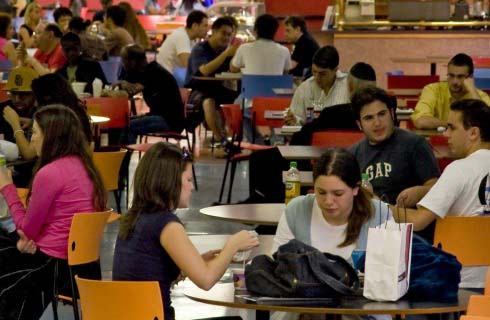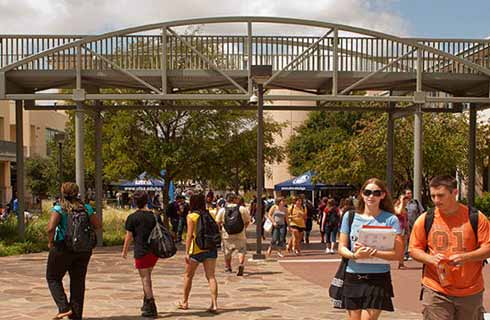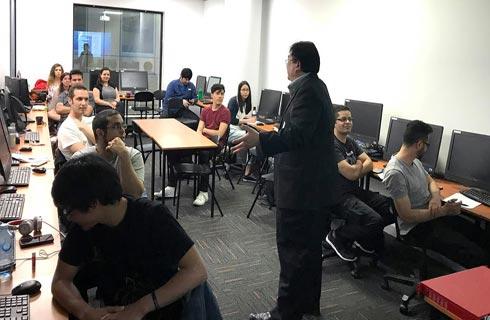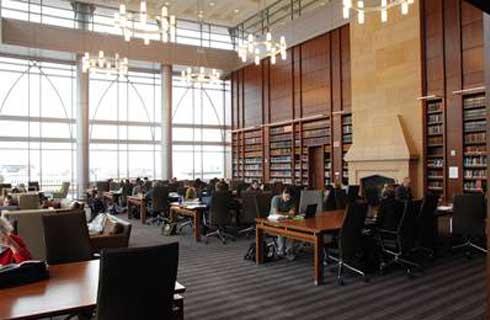BSc (Hons) Natural Sciences.

学历文凭
Bachelor Degree with Honours

专业院系
Natural Sciences

开学时间

课程时长

课程学费

国际学生入学条件
All applicants taking A levels will need three A levels with at least one Science (Biology, Human Biology, Chemistry, Mathematics, Physics.) The standard offer is A*AA and you will need specific A level grades to study:
Biology: A in either Biology or Chemistry.
Chemistry: A*A in any order in Chemistry and Mathematics.
Computer Science: A in Mathematics.
Economics: A in Mathematics.
Mathematics: Either A*A in any order in Maths and Further Maths at A level or A* in Maths plus A in AS Further Maths for students unable to take A2 Further Maths.
Physics: A*A in any order in Maths and Physics.
We do not include General Studies or Critical Thinking A levels as part of our offer.
All applicants wishing to study Psychology will need to have achieved Grade 5 (or grade B) in Mathematics at GCSE, or equivalent.
All applicants taking the International Baccalaureate will need a score of 38 points overall including either 766 or 666 at the Higher Level with at least one of these in a Science (Biology, Chemistry, Mathematics (analysis & approaches), Physics.) You will need specific Higher Level grades to study:
Biology: 6 in either Biology or Chemistry.
Chemistry: 76 in any order in Chemistry and Mathematics.
Computer Science: 6 in Mathematics.
Economics: 6 in Mathematics.
Mathematics: 7 in Mathematics.
Physics: 76 in any order in Mathematics and Physics.
If the augmented offer includes a 7 at the Higher Level in any subject, then the offer will be 766 at the Higher Level, otherwise, it will be 666 at the Higher Level. Ielts - 6.5 with no component under 6.0 , TOEFL iBT - 92 with no component under 23
IDP—雅思考试联合主办方

雅思考试总分
6.5
- 雅思总分:6.5
- 托福网考总分:92
- 托福笔试总分:160
- 其他语言考试:Pearson Academic PTE - 62 (with no less than 59 in each Communicative Skill)
CRICOS代码: CFG0
申请截止日期: 请与IDP联系 以获取详细信息。
课程简介
相关申请
 预科
预科 奖学金
奖学金 实习机会
实习机会 在校学习
在校学习 跨境学习
跨境学习 校园授课-线上开始
校园授课-线上开始 在线/远程学习
在线/远程学习
开学时间&学费
学费信息仅供参考,请与IDP联系以获取详细信息
| 开学时间 | 时长 | 学费 | 地点 |
|---|
学校排名

世界排名114
数据源:
泰晤士高等教育世界大学排名
关于杜伦大学

杜伦大学创建于1832年,是英国历史最悠久的大学之一。杜伦大学建于中世纪世界遗产地旁,有着悠久的历史和现代价值观,是一座备受推崇并拥有前瞻性思维的学府。如今,来自世界各地的18000多名学生在达勒姆就读。杜伦大学有28个系,开设有200多门本科和研究生课程。该校很多教师都处于各自领域的最前沿。教职人员利用出色的研究和学科知识为所有学生提供优质的教学。目前,杜伦大学有17个学科在全球大学中名列前100位,其中九个学科名列前50位。除了在学术上的卓越成就,该校还努力为学生提供支持,帮助他们在毕业后获得有意义的工作。其毕业生就业能力目前在世界上排名第88位。该校的就业与创业中心致力于培养学生的专业技能,并提供商业人脉和工作机会。杜伦大学目前在2020年《QS世界大学排名》中名列第78位,稳稳跻身全球大学百强之列。该校为教职人员和学生创造了一个热情友好的多元化社交环境,并因此而倍感自豪。目前,杜伦大学28%的在校生为非英国本土学生。大学社区处在独一无二的达勒姆求学体验的核心位置,达勒姆的每个社区均是多元化、多学科的社区,由来自不同背景和文化的学者、学生和工作人员组成。有了这些社区,加上该校杰出的支持体系,学生们一定会有宾至如归之感,并可参与大量精彩的课题。
本校相关课程

博士神学与宗教
学历文凭
Ph.D.
开学日期
课程费用总额


MLitt神学与宗教
学历文凭
Masters Degree (Taught)
开学日期
课程费用总额


博士学位论文博士学位
学历文凭
Ph.D.
开学日期
课程费用总额


理学硕士心理学研究
学历文凭
Masters Degree (Research)
开学日期
课程费用总额


研究心理学硕士
学历文凭
Masters Degree (Research)
开学日期
课程费用总额


博士哲学
学历文凭
Ph.D.
开学日期
课程费用总额

其他相关课程

生物技术硕士
 昆士兰大学
昆士兰大学泰晤士高等教育世界大学排名:80
学历文凭
Masters Degree (Coursework)
开学日期
课程费用总额


理学学士(荣誉学位)
 迪肯大学
迪肯大学泰晤士高等教育世界大学排名:206
学历文凭
Bachelor Degree with Honours
开学日期
课程费用总额


理学硕士(研究)-应用研究
 南昆士兰大学
南昆士兰大学学历文凭
Masters Degree (Research)
开学日期
课程费用总额


生物技术硕士
 墨尔本大学
墨尔本大学学历文凭
Masters Degree (Coursework)
开学日期
课程费用总额


应用科学副学士
 皇家墨尔本理工大学
皇家墨尔本理工大学学历文凭
Associate Degree
开学日期
课程费用总额


理学学士(纳米技术)
 弗林德斯大学
弗林德斯大学泰晤士高等教育世界大学排名:307
学历文凭
Bachelor Degree
开学日期
课程费用总额










 英国
英国